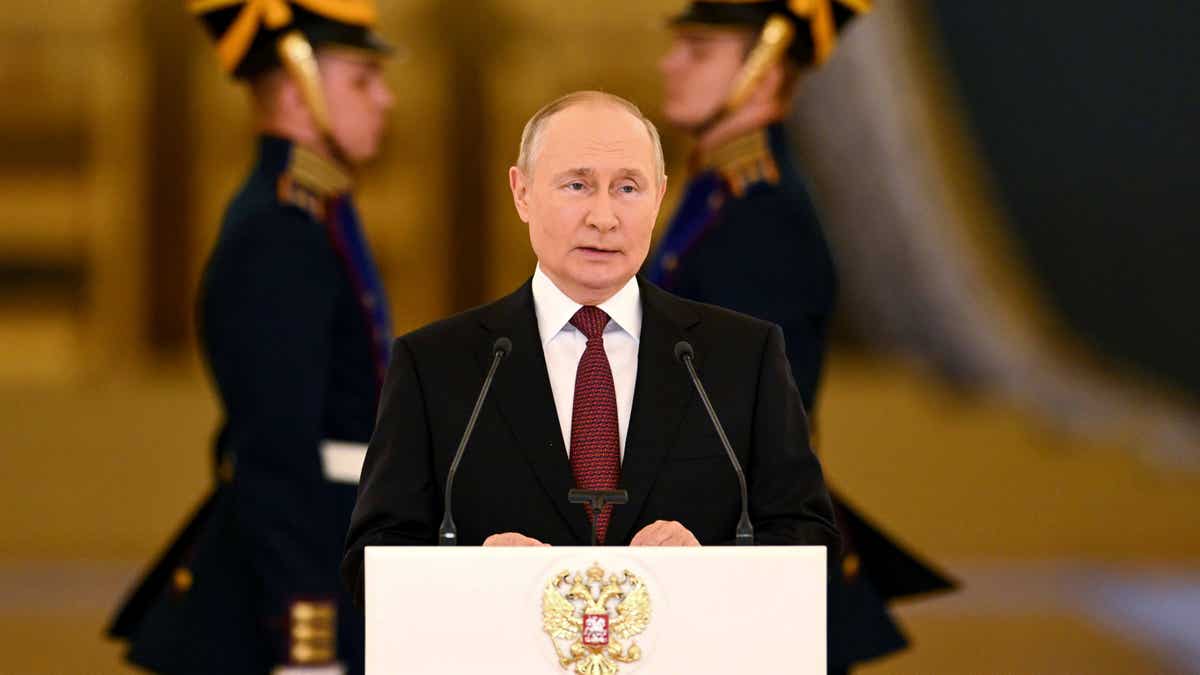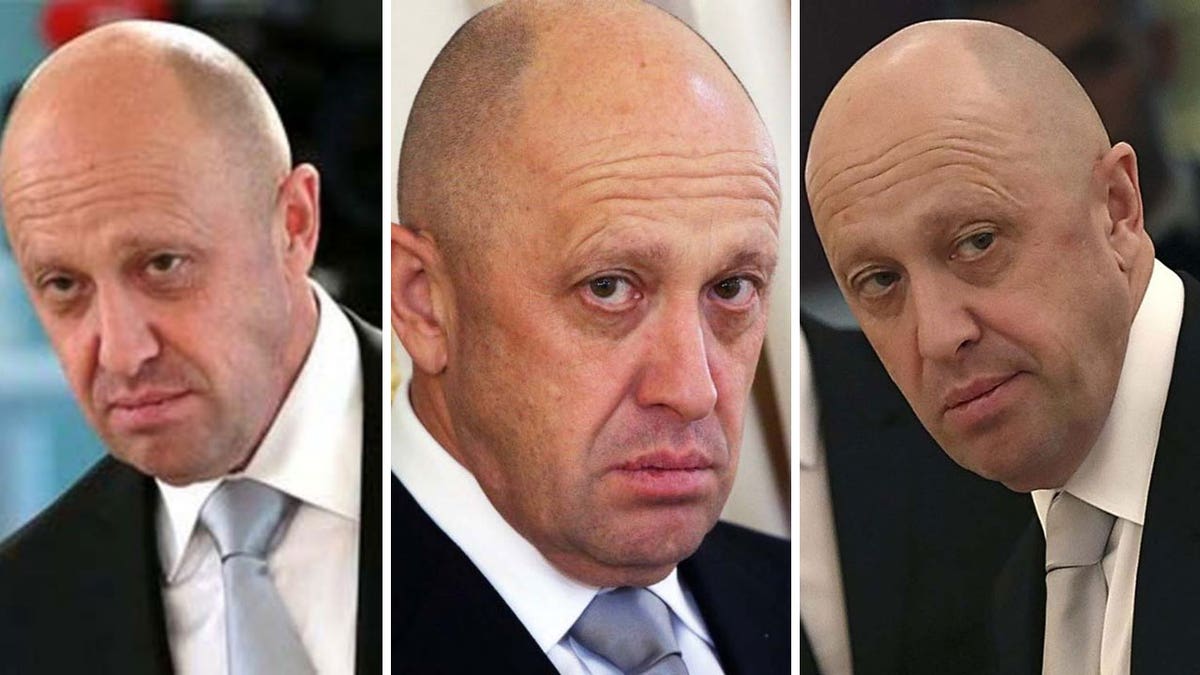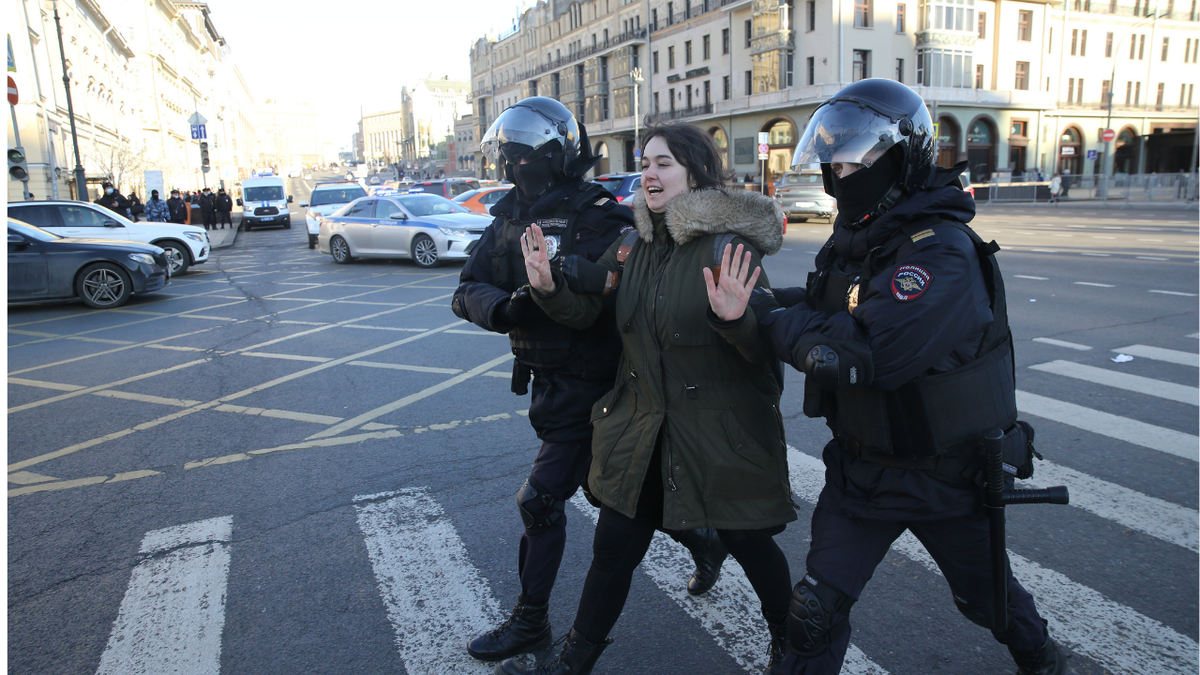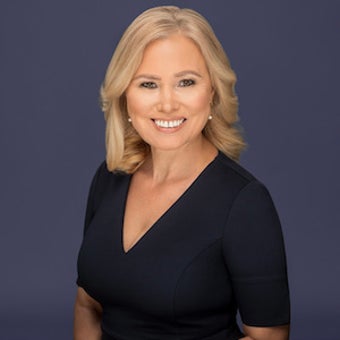Putin is trying to turn Ukraine into 'unlivable hell': Koffler
"Varney & Co." welcomes former Defense Intelligence Officer Rebekah Koffler as she discusses the missile attack in Poland and Putin's strategy in Ukraine.
As the Russia-Ukraine conflict enters its 10th month with no sign of a decisive victory by either side, Western observers are focusing on the poor performance of the Russian military, the domestic problems plaguing Russia and the purported weakening of Putin’s hold on power. People are understandably hopeful that somehow these factors will make President Vladimir Putin stop his war on Ukraine. It has even become de rigueur to count the days till regime collapse in Moscow.
But the conclusion that Putin is about to be removed from power is wishful thinking at best. Here are three reasons why.
1. Russia’s domestic situation has indeed deteriorated. The mobilization to replenish combat troops in Ukraine, Russia’s first since World War II, is driving thousands of military-age men to flee the country. Soldiers on the front lines complain about lack of uniforms, insufficient training and inedible food. There are anti-war protests in the streets, with some acts of sabotage. But this is nothing new in Russia. Culturally, the Russians are quite tolerant of government overreach, coercive actions and the lack of an orderly process. When it comes to the Russian government, there’s nothing that is done smoothly, orderly and without major snafus. Shortages are a fact of life and have been for decades, especially the military.
The current level of dissent among the Russian people is unlikely to reach a critical mass that would result in a popular uprising. Fear is a factor. The Russian government is known for brutal suppression of dissent, dating back to Soviet days. There is also no genuine process for replacing the regime with a better one.

Vladimir Putin delivers an address flanked by men in military uniforms. (Pavel Bednyakov, Sputnik, Kremlin Pool Photo via AP)
WHAT IS PUTIN THINKING? WHERE THE RUSSIA-UKRAINE WAR STANDS NINE MONTHS AFTER INVASION
While Putin’s approval rating has dropped approximately 8%, since March, 75% of Russians still approve of his activities and 78.7% trust him, according to Russia-based polling agencies considered reliable by Western analysts.
2. Reports about emerging dissent in Putin’s inner circle are either not credible or are exaggerated. In October, President Joe Biden reportedly received sensitive intelligence, as part of his presidential intelligence briefing, indicating that a member of Putin’s inner circle attributed the poor handling of the war in Ukraine directly to the Russian president. Western intelligence interpreted this information as a sign of turmoil in the Kremlin. But it is highly unlikely that U.S. intelligence has penetrated Putin’s inner circle and is able to collect secret information from one of its members.
Putin’s circle is extremely small, consisting of trusted former colleagues from his KGB days and his days as a top official in St. Petersburg. These loyal apparatchiks enjoy a far better life being within Putin’s orbit than the CIA could ever offer to them in America, if exfiltrated from Russia, in exchange for being a spy for the U.S. government. The risks are immeasurably high if exposed, such as person would be eliminated quickly. People within Putin’s inner circle are under constant surveillance and protection. Their communications are monitored by a technical surveillance system called SORM.
CLICK HERE TO GET THE OPINION NEWSLETTER

Multiple photos released by the FBI show Yevgeniy Viktorovich Prigozhin, who funds the St. Petersburg-based troll factory Internet Research Agency LLC. (FBI)
There are two individuals who have openly criticized the management of the war: Internet Research Agency benefactor Yevgeniy Prigozhin, the head of Putin’s personal hit squad the Wagner Group, and Ramzan Kadyrov, the head of Chechen Republic. But their criticism of the Russian military was that they were not brutal enough rather than too brutal. They are close Putin allies who would never act against him. Even if they did, it would be to make things worse for Ukraine, not better.
3. The probability of a coup is low. Putin did not conceptualize this war by himself, and he is not an anomaly but a baseline as far as Russian leadership. He is a typical Russian authoritarian. The warfighting strategy that Russia employs, including the targeting of civilians, was developed, albeit on Putin’s order, by the General Staff. The destruction of vital infrastructure that left 80 percent of Ukraine without heat, electricity and drinking water is a result of the so-called Strategic Operation to Defeat Critical Infrastructure of the Adversary. This is how Russia fights – it doesn’t try to minimize casualties or avoid civilian deaths. Stalin, for example, deliberately didn’t evacuate civilians out of the city prior to the Battle of Stalingrad because he believed that the "soldiers would fight harder for the city that is alive than dead." Putin and those who might oppose him are in this together.
So, in 2016, Putin created a special branch, the National Guard or Rosgvardiya, to protect his regime. Consisting of elite soldiers who are older with decades of service in security agencies, Rosgvardiya’s mission is to ensure public order and safety and cooperate with Russia’s domestic security agency, the FSB, for the defense of the Russian state. Rosgvardiya operatives are notorious for brutally dispersing peaceful protests, detaining and beating of opposition members and civil activists.

Russian police officers detain a woman during an unsanctioned protest rally against the military invasion of Ukraine, March 6, 2022, in Moscow. (Konstantin Zavrazhin/Getty Images)
CLICK HERE TO GET THE FOX NEWS APP
Putin personally selected a close ally and a fellow KGB operative, Viktor Zolotov, to lead Rosgvardiya. Zolotov started his career in the KGB in the 1970s as a bodyguard. In the early 1990s, Zolotov served as the bodyguard for Anatoly Sobchak, then-mayor of Saint Petersburg, President Boris Yeltsin and, of course, Putin himself, who was then Sobchak’s vice mayor. One of Putin’s closest associates, Zolotov is directly responsible for Putin’s personal safety.
It is common for Western analysts to project Western norms of behavior on Russia and Putin’s regime and make conclusions based on Western mindset. It is called "mirror imaging" in the intelligence business. But Putin, his top lieutenants, the Russian people don’t think and behave like Americans.










































